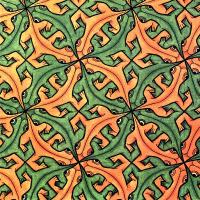Wpisy: 15
Język: English
jkph00 (Pokaż profil) 14 grudnia 2013, 16:26:03
 )
) robbkvasnak (Pokaż profil) 14 grudnia 2013, 16:32:47
jismith1989 (Pokaż profil) 14 grudnia 2013, 16:38:13
jkph00 (Pokaż profil) 14 grudnia 2013, 17:08:21
jismith1989:There's probably a better way, but here's my attempt: Li lernis ke li ne ĝenegu ŝin.That seems to capture it. Thanks!
Nile (Pokaż profil) 14 grudnia 2013, 18:33:17
Orinarily, saying "not" after a verb like that negates it, so "learned not to" should mean "did not learn to", and "learn to not" should carry the meaning that this sentence has.
jismith1989 (Pokaż profil) 14 grudnia 2013, 19:01:23
Nile:I just noticed something weird and idiomatic about that kind of phrase: negation is done differently.If you wanted to say 'did not learn to', you could put the ne earlier, e.g. Li ne lernis ke li ĝenegu ŝin. Which is similar to what you're doing in English (with 'learned not to', the 'not' is going with the 'to mess with' rather than the 'learned', whereas it's the other way around with 'did not learn to' ).
Orinarily, saying "not" after a verb like that negates it, so "learned not to" should mean "did not learn to", and "learn to not" should carry the meaning that this sentence has.
 So yeah, there is a difference in meaning between the two.
So yeah, there is a difference in meaning between the two. Nile (Pokaż profil) 14 grudnia 2013, 20:38:14
sudanglo (Pokaż profil) 16 grudnia 2013, 13:03:48
Li lernis ne kontraŭ-stari/kontraŭi ŝin.
Li lernis konform(iĝ)i kun ŝiaj deziroj.
Of these, I think I prefer lernis ne kontraŭi
jkph00 (Pokaż profil) 16 grudnia 2013, 14:41:27
sudanglo:Kontraǔi has just the flavor I was looking for. I'll go back and edit what I had written so as to use it. Thank you, Sudanglo and everyone who made suggestions. They were all deeply appreciated.
Of these, I think I prefer lernis ne kontraŭi
Regarding the way to parse the sentence itself ("He learned not to mess with her" ), I diagrammed the sentence and have attached a .bmp of it. Does that help clarify the parse order?
Nile (Pokaż profil) 16 grudnia 2013, 15:34:45
Which means he "didn't learn (to mess with her)".





